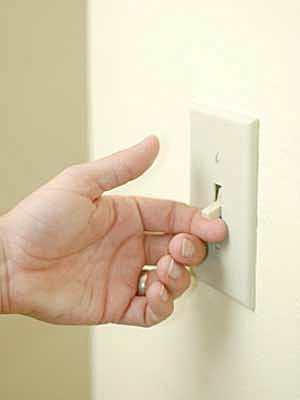‘Sex in the Dark’ answers students’ anonymous carnal questions

Courtesy Photo / Google Images
Dec 6, 2010
Sex can be a tough topic to discuss in public or with a professional. There are a lot of questions that people may have but are too afraid to ask so instead listen to the myths their friends have told them.
Last Monday, student organizations Voices for Healthy Choices and FACE AIDS held a program called “Sex in the Dark,” which let students ask their sex or health questions anonymously to two “Sexperts.”
Those sexperts were Danielle DeMuth, assistant professor of women and gender studies at Grand Valley State University, and Kym Duursma, an educator from Planned Parenthood of West Michigan.
The event was held in the dark, except for a string of lights across the speakers’ table and the podium where Nikita Bradford, the president of Voices for Healthy Choices, and Courtney Peterson, the group’s treasurer, read the questions.
They decided to bring the event to GVSU after a summer event with Planned Parenthood of Michigan. A group from Western Michigan University held the program and had a good response.
“They said it was a successful event and it got people more educated. We loved it, so we ran with it,” Bradford said.
The questions asked were about health, pleasure and sexual myths. Other topics included wet dreams, masturbation and the ever-elusive “G-spot.”
“Masturbation isn’t about whether you have a partner or you don’t,” Duursma said.
Both DeMuth and Duursma said it is okay to experiment to see what you enjoy sexually and make sure you choose the right partner with whom you are comfortable to do those things.
“I would really love it if we set ourselves up to have the most positive experiences when we do decide to be sexual,” Duursma said. “Sex can be one of the most incredible experiences people can have, and it can also be the most devastating experience people can have.”
DeMuth and Duursma also agreed that it is important to have a conversation with your partner to discuss what you like and dislike sexually.
“And the time to have that conversation isn’t when you’re naked,” DeMuth said. “The time to have this conversation is when you have a ‘sex date’ where your entire goal is to talk about what’s working for you and what you’re interested in. We’re all vulnerable when we’re naked.”
Duursma said the questions have not changed in 20 years, and that means as a culture we are failing to do a good job informing children about sex.
“I hope they got that all the things that they think are abnormal aren’t,” DeMuth said. “Everyone has a sexuality that’s individual, that’s changing, that unfortunately we’ve been taught to be ashamed of. Hopefully they feel more comfortable with their sexuality, their questions and their desires and less alone about it. Just really embrace pleasure.”
Duursma said she hopes students left with a more positive perspective on sex than when they came. She said there is a huge range when it comes to sexuality.
“I hope they got ‘sex positive’ out of it,” she said. “That maybe I’m not clear about it but it’s OK to ask, and this is what I like even if you don’t – it still doesn’t make me weird or abnormal.”
Both women agreed that discussions such as “Sex in the Dark” should continue to be done at GVSU and in the community.
Bradford said she really liked the questions they got and that they plan on doing the event again next year. She said the more people ask questions, the more informed they are and at least they got their information firsthand and not from a third-party source who may have misinformation.





















